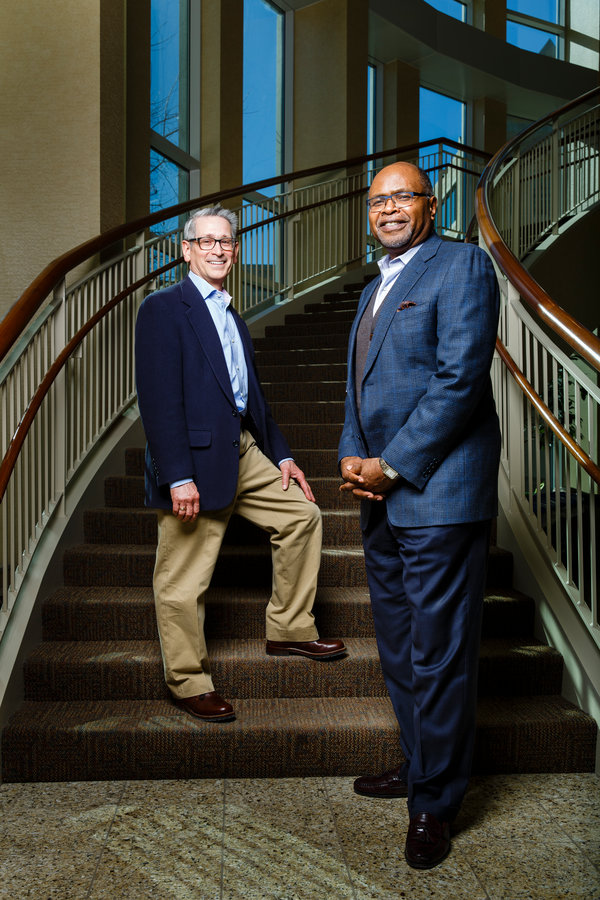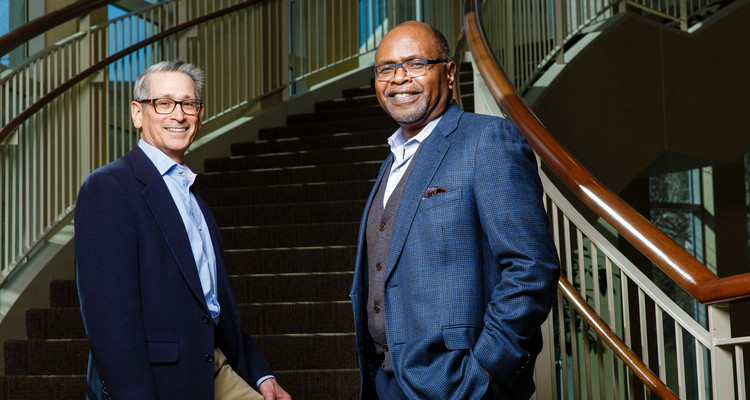Some of the biggest questions global corporations operating in emerging markets need to confront concern ethics. Doing business in or with developing countries often challenges executives’ and managers’ business principles, training and even personal values.
Take, for example, the situation executives at Cargill, a global corporation headquartered in Minnesota, encountered in one of the emerging markets in which they operate. “Tax laws in this country require us to pay value-added tax and then get refunded by the government,” said Emery Koenig, vice chairman and chief risk officer for the company. “At times, the amount the government owes us on refunds can reach $80 million or $100 million. This has a significant impact on our ability to run our business there. As it turned out, there was one official who made the decisions on how quickly we would get repaid.”
Koenig said company leaders made it a practice, when visiting the country, to see this official and ask when Cargill might expect to get reimbursed. During one of these visits, the official had a request of his own. “After asking when we could get our refund he said, ‘You know, it’s funny. My son’s soccer team needs a new fence and scoreboard for their field.’ Put yourself in our shoes: $100 million for a fence and a scoreboard. And this is a positive thing for the community, right? Helping a kids’ soccer team! After much debate, we weren’t prepared to buy one official his fence and scoreboards. What we were willing to do was to build new fences and scoreboards for every soccer field in the city.”
How global business can best navigate and respond in situations like this is the subject of a forthcoming book, edited by Douglas Jondle, Ph.D., director of research for the Center for Ethical Business Cultures (CEBC) at the Opus College of Business, and Alexandre Ardichvili, Ph.D., professor at the University of Minnesota and fellow for the CEBC. The book, currently titled Ethical Business Cultures in Emerging Markets, focuses on the business practices in the top emerging markets today, known as the BRICs (Brazil, Russia, India and China) and the MISTs (Mexico, Indonesia, South Africa and Turkey). Chapters are written by contributing authors who live in or originate from the country they profile, offering insights into each unique culture.
The book’s origin lies in the Journal of Business Ethics article “Ethical Cultures in Large Business Organizations in Brazil, Russia, India, and China.” The article drew upon the WorkTrends survey conducted by the CEBC in partnership with Kenexa, an IBM company, in 2009, in which more than 13,000 employees in five countries were asked questions designed to explore ethical perceptions in cultures around the globe. The data from the survey eventually led to the CEBC’s 2013 article in The European Business Review, “Building Ethical Business Cultures: BRIC by BRIC.” That article caught the attention of Cambridge University Press, which approached the CEBC about expanding the topic into a book.
As Jondle delved deeper into the topic, he and Ron James, president and CEO of the CEBC, decided to expand their examination to include the MISTs and to develop material that would impact both academics and practitioners. “When we first considered the book, we wanted it to answer questions about what it’s like to do business in these countries,” Jondle said. “But as the book evolved, we started to see it as being about how to do business with these countries. A lot of the emerging markets are becoming global as well, so it’s not just about Western companies going into BRIC or MIST countries anymore.” As examples, Jondle cited Essar Steel, an Indian company building an iron ore-to-steel mill on Minnesota’s Iron Range, and Chinese automaker Geely, which bought Volvo from Ford in 2010.

CEBC's research director, Douglas Jondle (left), and president and CEO Ron James (right), anticipate the book Ethical Business Cultures in Emerging Markets will be published in 2017.
It’s All about Relationships
While the U.S. has had formal rules of engagement for global business since the passing of the U.S. Foreign Corrupt Practices Act in 1977, not all cultures define corruption the same way. What might be considered out of bounds to someone from a Western culture may be considered the cost of doing business in countries that have complex systems with complicated laws and many layers of bureaucracy. Some BRIC and MIST countries even have a name for the practice of circumnavigating these labyrinthine systems. For example, in Brazil, it’s known as jeitinho, which loosely translates to the “Brazilian way of living,” and is about forming relationships that will help you get around bureaucracy through informal relationships.
“In Western culture, everything is formalized by contract or rule of law,” James said. “But in Brazil, you might find competing laws or even conflicting laws and that can stifle the ability to get jobs done. But if people know you, they’ll find a way around the bureaucracy. It becomes imperative for Western executives or workers to do this legitimately because it can be easy to get derailed if they start cutting too many corners and doing things that are illegal.” He added that while the U.S. tends to believe in a universal set of laws and practices that are essentially “one size fits all,” many other cultures tend to be situational, deciding what’s best to do in each individual situation.
Overall, BRIC and MIST countries are more communal in nature than countries such as the U.S., which tends to be highly individualistic. Noor Rahmani, Ph.D., Universitas Gadjah Mada, the contributing author from Indonesia, points out that, while nepotism is frowned upon in Western culture, in Indonesia it’s an extremely important part of business. People tend to look out for their families and close connections and use their positions within companies to get jobs for others. When an executive or manager for a Western company says, “We can’t do that,” it can put a lot of pressure on the individual who’s working for that company when their family members and friends ask, “Why can’t you get me a job?”
Jondle stressed that it’s important to identify differences like this between home country (where the business is headquartered) and host country (where business is conducted, often selling or manufacturing) in advance of serious conflict. “There are these different sets of norms,” he said. “And sometimes we have to work hard to make sure we understand the cultural similarities and differences and examine values between the two. It’s important to try to find the places where values overlap.”
A Global Climate Change
As the global economy continues to expand, the effects of corruption in emerging markets can become more apparent, causing the gap between rich and poor to widen or creating environments that prove difficult for global corporations. As a result, many BRIC and MIST countries are enacting their own laws regarding bribery.
“Legal remedies are being put into place to address it,” James said. “Violators are fined, someone is put in jail and companies suffer huge reputation losses. But the flip side of the legal remedy is the ethical remedy; what if countries were to invest in setting the legal standard, so people know what kind of behavior is acceptable and what’s not?”
Business and consumer climates are also changing. “In Europe, financial markets are starting to evaluate companies on something called ESG, or Environmental, Social and Governance,” James said. “This is a measure of how a company treats the environment, how seriously it takes its corporate social responsibility and its overall governance.” Consumers also play an important role. Many Westerners are willing to pay a premium for well-made products that are also ethically produced, rather than buying the cheapest product. “It’s no longer just about what you produce, but how you produce,” James said. “Ethics is very much part of this equation.”
Developing an understanding of the “how” is what forms the crux of the book, which the CEBC hopes will serve as a starting point for deeper investigations into the nuances of behavioral standards and cultural values. “The variabilities and diversity of populations and cultures can drive innovation,” Jondle said. “In global companies it provides a real fuel. One message of the book is to be aware of and appreciate those differences so they become an advantage.”
Beyond the Book
Although the book won’t be published until 2017, the CEBC is already finding ways to expand the conversations sparked by its content and to move beyond the print project. One such opportunity presented itself after the authors completed their first draft of the book. In order to get more input from business practitioners and get help shaping the book’s next draft, the CEBC organized a conference called Ethical Business Practices in Emerging Markets: Risks and Opportunities, on Sept. 25 and 26, 2015, at the University of St. Thomas’ Opus College of Business.
The conference provided a comfortable environment in which to share experiences of working in BRIC and MIST countries, exploring the topics of diversity and inclusion; leadership; relationship building; and the challenges of dealing with corruption and bribery. The keynote address, delivered by Koenig, was about Cargill’s experience working in emerging markets. Other businesses and corporations represented included: Best Bu;, Carlson Companies; Fredrikson & Byron, P.A.,; General Mills; Medtronic; St. Jude Medical; Target; Thrivent; Toro; Wells Fargo; Oppenheimer, Wolff & Donnelly; and Reell.
“As companies headquartered in the West become more involved in the host countries, hire more locals and bring in local managers, they begin to appreciate that the issue of diversity is real,” Jondle said. “There used to be a mindset of ‘our way’ – the Western way – that for many years influenced how decisions were made. But the old mentality of coming in and using resources, people and labor and then leaving when it is no longer helping the bottom line is shifting.” As companies make considerable investments in the workforce and facilities in host countries, they are more likely to cultivate relationships for the long term.







